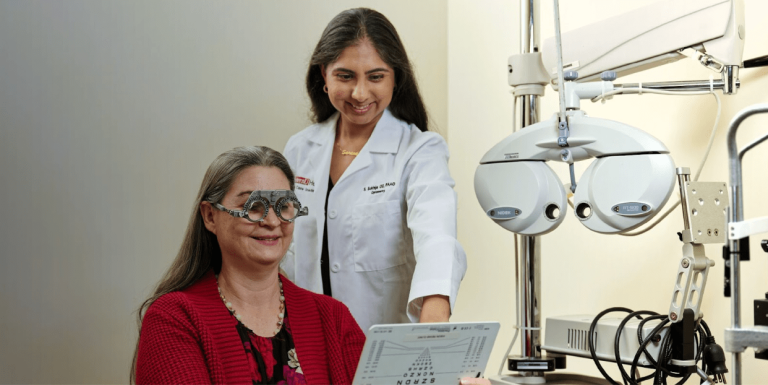
Reproductive medicine has witnessed remarkable advancements over the years, offering new possibilities and opportunities for individuals and couples seeking to expand their families. These innovations have led to profound ethical questions and debates surrounding the boundaries of reproductive technologies, raising concerns about the potential consequences and responsibilities associated with these advancements. In this article, we delve into the ethical frontiers of reproductive medicine and explore the insights and perspectives of Dr. Ian Hardy, a renowned expert in the field.
The Evolving Landscape of Reproductive Medicine
Reproductive medicine has evolved significantly, transforming the way we understand and manage issues related to fertility, conception, and childbirth. Driven by groundbreaking scientific discoveries and technological advancements, the field now offers a wide array of options for individuals and couples facing fertility challenges. Assisted reproductive technologies (ART), including in vitro fertilization (IVF), preimplantation genetic testing (PGT), and egg freezing, have become commonplace, giving hope to many who previously had limited options.
Balancing Progress and Responsibility
While these advancements have undoubtedly expanded the horizons of reproductive medicine, they also bring forth complex ethical dilemmas that require careful consideration. Dr. Ian Hardy, a distinguished expert in the field, emphasizes the importance of striking a balance between progress and responsibility.
“We must acknowledge that with every breakthrough in reproductive medicine, we also assume a profound ethical responsibility,” says Dr. Hardy. “Our commitment should be to ensure that these technologies are used ethically and responsibly, prioritizing the well-being of the individuals involved and the potential offspring.”
Patient Autonomy and Informed Consent
One key ethical consideration in reproductive medicine is the principle of patient autonomy. Individuals and couples should have the freedom to make informed decisions about their reproductive choices. However, ensuring that patients are fully informed about the risks, benefits, and potential long-term consequences of various reproductive technologies is crucial.
Dr. Hardy stresses the importance of robust informed consent processes. “Informed consent is the cornerstone of ethical reproductive medicine,” he notes. “Patients should have a thorough understanding of the procedures, potential outcomes, and any associated ethical considerations before proceeding with any treatment.”
Genetic Testing and Designer Babies
Advancements in genetic testing have opened up the possibility of selecting embryos based on specific genetic traits or characteristics. While this technology offers the potential to prevent the transmission of genetic diseases and conditions, it also raises concerns about the potential for “designer babies” – where parents select embryos for non-medical traits such as intelligence or physical appearance.
Dr. Hardy believes that striking the right balance is essential. “We should use genetic testing to prevent serious hereditary diseases and conditions, but we must be cautious about venturing into the realm of non-medical trait selection,” he explains. “Ethics should guide us to prioritize the health and well-being of future generations over superficial desires.”
Surrogacy and the Commercialization of Reproduction
Surrogacy, another facet of reproductive medicine, has gained popularity as a means for individuals and couples to build their families. However, the commercialization of surrogacy has raised concerns about the potential exploitation of surrogate mothers and the commodification of reproduction.
Dr. Ian Hardy highlights the ethical complexities surrounding surrogacy. “We must ensure that surrogacy arrangements prioritize the well-being and autonomy of the surrogate mother,” he states. “Regulations should be in place to prevent exploitation and safeguard the rights and interests of all parties involved.”
The Role of Regulation and Oversight
In addressing these ethical challenges, Dr. Ian Hardy emphasizes the critical role of regulation and oversight in reproductive medicine. “Effective regulation is essential to ensure that these technologies are used responsibly and ethically,” he says. “Regulators, healthcare professionals, and ethicists should collaborate to establish guidelines and standards that protect the interests of patients and potential offspring.”
Ethical Considerations in Fertility Preservation
Fertility preservation, including egg freezing and sperm banking, has become increasingly popular among individuals and couples seeking to delay parenthood. While these techniques offer the prospect of preserving fertility for the future, ethical questions arise regarding the potential consequences of delayed childbearing.
Dr. Hardy underscores the importance of informed decision-making when it comes to fertility preservation. “Patients should receive accurate information about the limitations and potential risks of fertility preservation,” he emphasizes. “It is crucial to strike a balance between empowering individuals to make choices about their reproductive futures and ensuring they understand the implications of those choices.”
The Future of Reproductive Medicine
As reproductive medicine continues to advance, the ethical frontiers will evolve alongside it. Dr. Ian Hardy believes that ongoing dialogue and ethical reflection are essential to navigate these complex waters. “The future of reproductive medicine holds promise, but it also challenges us to remain vigilant in upholding ethical principles,” he states. “As the field progresses, our commitment to responsibility, patient autonomy, and the well-being of all involved should remain unwavering.”
Conclusion
In the ever-evolving landscape of reproductive medicine, ethical considerations are paramount. Dr. Ian Hardy, with his extensive academic and professional background, reminds us that progress in this field should always be accompanied by a deep sense of responsibility. Patient autonomy, informed consent, and the well-being of all parties involved must guide our decisions as we navigate the ethical frontiers of reproductive medicine.






